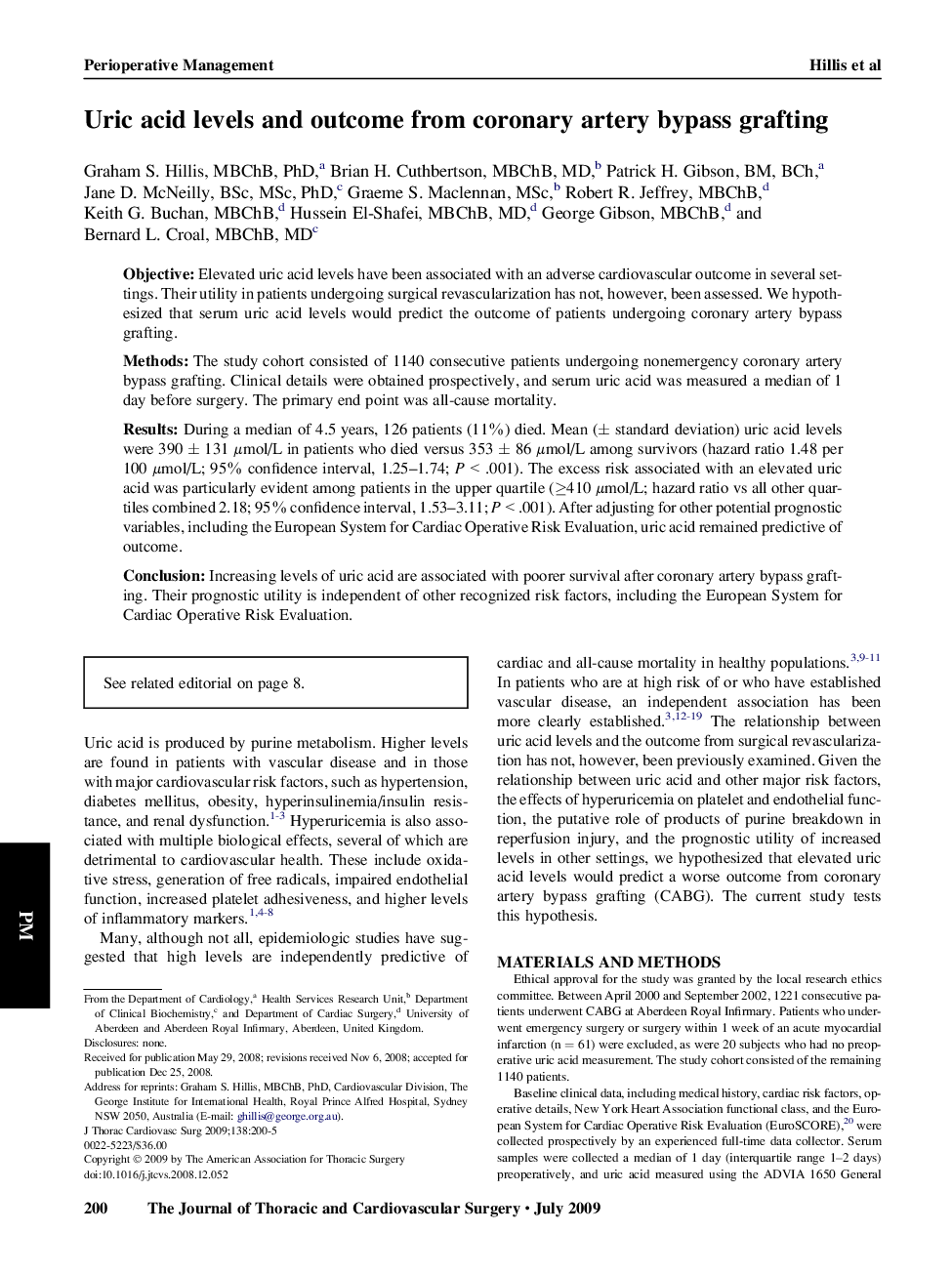| Article ID | Journal | Published Year | Pages | File Type |
|---|---|---|---|---|
| 5992641 | The Journal of Thoracic and Cardiovascular Surgery | 2009 | 6 Pages |
ObjectiveElevated uric acid levels have been associated with an adverse cardiovascular outcome in several settings. Their utility in patients undergoing surgical revascularization has not, however, been assessed. We hypothesized that serum uric acid levels would predict the outcome of patients undergoing coronary artery bypass grafting.MethodsThe study cohort consisted of 1140 consecutive patients undergoing nonemergency coronary artery bypass grafting. Clinical details were obtained prospectively, and serum uric acid was measured a median of 1 day before surgery. The primary end point was all-cause mortality.ResultsDuring a median of 4.5 years, 126 patients (11%) died. Mean (± standard deviation) uric acid levels were 390 ± 131 μmol/L in patients who died versus 353 ± 86 μmol/L among survivors (hazard ratio 1.48 per 100 μmol/L; 95% confidence interval, 1.25-1.74; P < .001). The excess risk associated with an elevated uric acid was particularly evident among patients in the upper quartile (â¥410 μmol/L; hazard ratio vs all other quartiles combined 2.18; 95% confidence interval, 1.53-3.11; P < .001). After adjusting for other potential prognostic variables, including the European System for Cardiac Operative Risk Evaluation, uric acid remained predictive of outcome.ConclusionIncreasing levels of uric acid are associated with poorer survival after coronary artery bypass grafting. Their prognostic utility is independent of other recognized risk factors, including the European System for Cardiac Operative Risk Evaluation.
